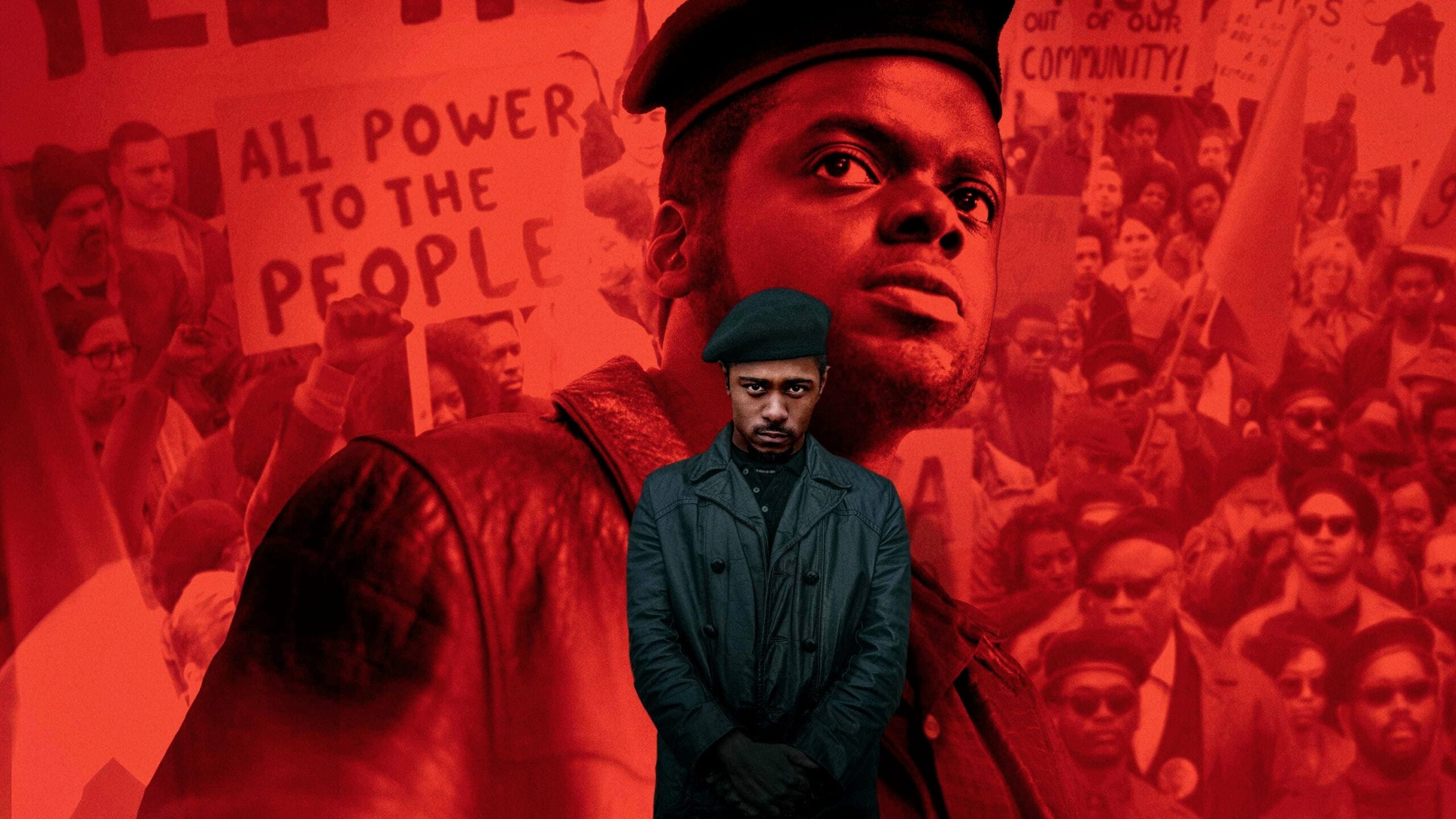REVIEW: Judas and the Black Messiah (2021)
On Friday, February 12, Judas and the Black Messiah was released to theaters and on HBO Max. Directed by Shaka King, the film follows the events leading up to Illinois Black Panther Chairman Fred Hampton’s assassination through the eyes of Bill O’Neal, the man who ultimately betrayed him. I only knew fuzzy details of this story going in, as I never really knew anything about the Black Panthers (aside from the fact that they existed) until college. I’m by no means an expert on the topic, so I’ll be evaluating Judas and the Black Messiah strictly as a movie, not grading it on historical accuracy. The film has a stellar cast and reunites lead actors LaKeith Stanfield and Daniel Kaluuya, who worked together in Get Out. Lil Rel Howery, who played Chris’ friend Rod, also briefly appears in Judas and the Black Messiah. Martin Sheen, Jesse Plemons, and Dominique Fishback fill out the supporting cast as J. Edgar Hoover, Roy Mitchell, and Fred Hampton’s girlfriend Deborah Johnson. Director Shaka King has previously worked exclusively on independent projects, and this is certainly an interesting first Hollywood movie in that it doesn’t feel Hollywood at all. Divorced from historical context, how is Judas and the Black Messiah? Let’s have a look.
The film’s story is bookended with the only interview O’Neal ever gave on the subject, taken from Eyes on the Prize 2 in 1989. As O’Neal struggles to answer the question of how he would explain it all to his son, Judas and the Black Messiah segues to the past, and we see O’Neal (LaKeith Stanfield) posing as an FBI agent. He flashes a phony badge and tells a young man in a bar that his car was reported stolen. However, the ensuing scuffle between them makes it clear to the other patrons that he’s not FBI, just a sophisticated carjacker. He runs and temporarily gets away, but the police catch him, and he’s facing over six years in prison for stealing a car and impersonating an officer. Roy Mitchell (Jesse Plemons) has a proposition for him: spy for him and go home, no jail time served. His mission is to infiltrate the Illinois Black Panther Party and spy on Chairman Fred Hampton. However, O’Neal’s beliefs and loyalties quickly become muddled as he gets closer to Fred. The man Roy told him was an enemy of the state turns out to be an activist who wants to feed children and educate people. The terrorists he feared are merely trying not to live in fear themselves. Does Bill serve his FBI handler or the people he claims to care about?

The performances in Judas and the Black Messiah are phenomenal. It’s not often that an entire ensemble cast is this good, but there really is no weak link here. Martin Sheen is slimy and calculating as J. Edgar Hoover. In fact, this would make a good double feature with 2011’s J. Edgar to show both sides of a complicated person. Jesse Plemons strikes all the right chords as Roy Mitchell, playing on sympathy for O’Neal’s situation and threatening him in turns. At times, you really believe that he might care for Bill on some level, making it easier to understand why Bill would make the choices he does. But, ultimately, they both get to see what’s going on behind the curtain, and both go along with it. LaKeith Stanfield is very understated as O’Neal, and his chemistry with Kaluuya is on-point. His matter-of-fact way of speaking in the documentary segments (excluding the one at the end with the real O’Neal) perfectly implies a layer of regret and self-loathing beneath. It’s hard to say, as they’re very different performances, but I think Daniel Kaluuya is the stand-out in the film. He switches from the great orator to the quiet, thoughtful young man Deborah (Dominique Fishback) encounters with ease, like he’s merely changing costumes. Both are equally believable. Kaluuya doesn’t look like Hampton at all, but he has this undeniable on-screen charisma that, I think, makes him great in the role. He has some of the most expressive, striking eyes I’ve seen on any actor. Dominique Fishback is great as Deborah Johnson, and again, her chemistry with Kaluuya is pure electricity. Not only are the roles well cast, but they all play off of one another so well they seem like real friends, couples, etc.

It’s strange to think about, but I find some small catharsis in stories of betrayal. It’s just such a universal occurrence; we’ve all felt betrayed at some point or another, although most of us probably haven’t been sold out to the FBI by a friend – at least, I hope not. While I can’t speak to the accuracy of the details shown in Judas and the Black Messiah, the Biblical allusion in the title fits perfectly with what the film gives us. The movie’s Fred Hampton is so giving, so unconcerned with his own well being, that he refuses the chance to escape that would have saved his life. He has a child on the way, yet when a local gang he recruited offers him enough money to leave the country, he instead puts the money towards their free medical clinic. At one point, O’Neal suggests that they bomb City Hall to take out some cops. The film doesn’t make it clear where he got the C4, but I assumed Mitchell gave it to him to frame/trick the Panthers. Not only does Hampton say this is a bad idea, but he calls Bill “crazy” and almost fights him. They paint Hampton not as flawless and pure as Jesus, but someone like Jesus who just wants to do whatever he can for others, namely the oppressed. It’s telling that, as the film goes on, O’Neal seems to start believing Hampton’s message more and more. There were even a couple of moments where Mitchell seemed surprised at how far the FBI was willing to go, allowing their informants to commit murder within the Panther organizations and then covering it up. But history is what it is, so everyone does their bit of dirty work in the end. O’Neal complies in the assassination of his friend and leader and is rewarded with a gas station and some cash.

The style of Judas and the Black Messiah feels fresh and unique, which I assume comes from Shaka King’s background as an indie director. Every genre has its tropes and shorthand, but biopics have become extremely formulaic and repetitive of late. This is a welcome shake-up, with its atmosphere, music, and even the framing of some shots differentiating Judas and the Black Messiah from most recent historical dramas. You know a movie has really sucked you in when you know what’s going to happen and you still hope it won’t. Judas and the Black Messiah got me so invested in Fred Hampton, his friendship with O’Neal, and his relationship with Johnson that I was dreading the FBI raid. This is by no means a feel-good movie, but it’s a fascinating examination of a case we don’t talk about enough, and it taps into our primal fears of betrayal and greed.

Verdict: Great
Judas and the Black Messiah is riveting from beginning to end. At times, I forgot I was just watching a movie, cheering for small moments of triumph and begging Roy and Bill to reconsider. The acting, dialogue, and overall tone of the film just sucked me in until the final Eyes on the Prize 2 clip and the following postscript relaying what happened to O’Neal following the interview.








This is the kind of trash that’s HBO Max
I think I’ll just pirate The Snyder Cut now.
People can do what they want their money but I try to not support companies that paint domestic terrorists as heroes.